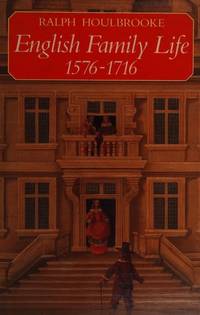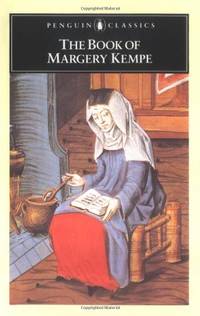Women’s History Month 2023, 1: Alice Thornton and Margery Kempe
For Women’s History Month 2023, we are posting a series of reflections on our first encounters with Alice Thornton and our changing relationship with her books from then to now. Feel free to get involved by sending us your own reflections, on Twitter or on Facebook.
First up is project PI, Cordelia Beattie:
CN: childbirth and pain
My first encounter with Alice Thornton’s writings was in 2000. I had been asked to teach a comparative history course on ‘Women and the Family’ at York St John University, focussing on the medieval period, the seventeenth century and 1890-1918. At the time I was finishing my PhD on medieval single women and so the first part was quite straightforward. The second part was a new challenge.

For the seventeenth century, I borrowed a pile of books from one of my supervisors, Professor Felicity Riddy. For a discussion of childbirth, I recall that I used some of the passages from Alice Thornton’s books, provided in Ralph Houlbrooke’s anthology, English Family Life, in turn taken from Jackson’s 1875 edition. Houlbrooke included extracts relating to Thornton’s pregnancies and childbirths over the period 1654 to 1667 (from second child, Nally, to ninth child, Christopher).[1] For example, regarding the birth of her fifth child in 1657:
upon the Wednesday, the ninth of December, I fell into exceeding sharp travail in great extremity, so that the midwife did believe I should be delivered soon. But lo! It fell out contrary, for the child stayed in the birth, and came cross with his feet first, and in this condition continued till Thursday morning between two and three a clock, at which time I was upon the rack in bearing my child with such exquisite torment, as if each limb were divided from each other, for the space of two hours, when at length, being speechless and breathless, I was by the infinite providence of God in great mercy delivered.[2]
I found that such extracts paired well with the text that I had chosen for the same topic for the medieval period, The Book of Margery Kempe:

When this creature was twenty years of age, or somewhat more, she was married to a worshipful burgess and was with child within a short time, as nature would have it. And after she had conceived, she was troubled with severe attacks of sickness until the child was born. And then, what with the labour pains she had in childbirth and the sickness that had gone before, she despaired of her life, believing she might not live. Then she sent for her confessor.[3]
The Book of Margery Kempe is often referred to as the first autobiography written in English. It is written in the third person and purports to be dictated by Kempe (c.1373-1440). The Book tells us that Kempe had fourteen children but little more about them, apart from one son who went to live in Danzig. In this, the book is different from those by Thornton. I continued to teach such passages in a course on ‘Women in England, 1300-1700’, which I ran at the University of Edinburgh between 2003 and 2014.
My next key encounter was in 2018 when my dad asked me if I was interested in an Alice Thornton manuscript, as shown to him in the pub by a neighbour. It was Thornton’s Book of Remembrances. This finding of a 'missing' manuscript, kept in a chest in a private home, again made me think back to the story of how the Butler-Bowdons found the only manuscript of Kempe’s Book in their family’s ping-pong cupboard in 1934, with Hope Emily Allen identifying it later that year. Thornton’s text had only been untraced since c.1936, though, when it was borrowed from the Comber family and copied by Wallace Notestein at Yale University.[4] Two of Thornton’s other books had been acquired in 2009 by the British Library, who acquired the Kempe manuscript in 1980.
When I found another missing Thornton manuscript, Book 2: The First Book of My Widowed Condition, at Durham Cathedral Library in January 2019, it was Thornton’s attention to her legal problems that caught my attention; from her father’s missing will (which she gave evidence to Chancery about) to her husband’s attempt to disinherit her two daughters, Nally and Katherine.
In the intervening years, I had worked a lot on premodern women and the law, from their limited ability to make wills as married women to their submissions to the court of Chancery. I knew I wanted to work further on Book 2 and I will be talking about ‘this grand concern of my life’, as Thornton called it, at the RSA San Juan on 9 March.[5]
While I do sometimes think of Margery Kempe when reading Alice Thornton’s Books – with her complaints of mistreatment by friends and family and her marmite persona - my reading of these texts has changed a lot since 2000. Rather than look at those passages of childbirth out of context, I appreciate the opportunity to read the books as Thornton intended them to be read. And I am excited that we will get the opportunity to share that experience with you all when we publish the full digital edition here in summer 2024.
Ralph Houlbrooke, English Family Life, 1576-1716: An Anthology from Diaries (Oxford: Basil Blackwell, 1988), 119-24. ↩︎
Houlbrooke, English Family Life, 120. ↩︎
Margery Kempe, The Book of Margery Kempe, trans. B.A. Windeatt (Harmondsworth: Penguin, 1985), 41. ↩︎
Alice Thornton, My First Booke of My Life ed. Raymond A. Anselment (Lincoln: University of Nebraska Press, 2014), lii. Wallace Notestein used it for his English Folk: A Book of Characters (New York: Harcourt, Brace and Company, 1938), although in his acknowledgements he thanks Helen Sale for writing the ‘first draft’ of the chapter on Thornton. #thanksfortyping ↩︎
The text here is from our work-in-progress edition of Alice Thornton's Books. It is modernised in the body of the blog and the semi-diplomatic transcription is reproduced here: 'this grand conserne of my life'; Alice Thornton, Book 1: The First Book of My Life, British Library MS Add 88897/1, 124. ↩︎
Citing this web page:
Cordelia Beattie. 'Women’s History Month 2023, 1: Alice Thornton and Margery Kempe'. Alice Thornton's Books. Accessed .https://thornton.kdl.kcl.ac.uk/posts/blog/2023-03-01-WHMThorntonandKempe/